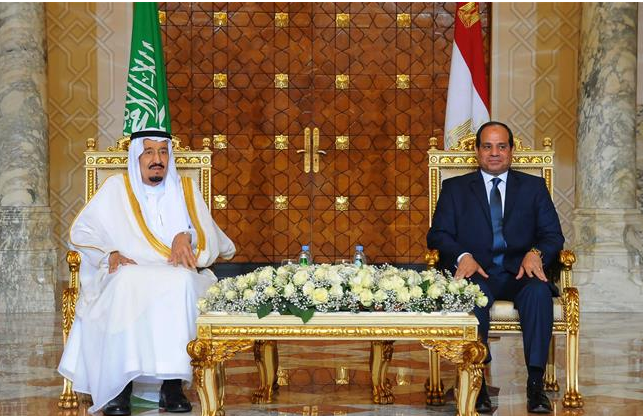-
Tips for becoming a good boxer - November 6, 2020
-
7 expert tips for making your hens night a memorable one - November 6, 2020
-
5 reasons to host your Christmas party on a cruise boat - November 6, 2020
-
What to do when you’re charged with a crime - November 6, 2020
-
Should you get one or multiple dogs? Here’s all you need to know - November 3, 2020
-
A Guide: How to Build Your Very Own Magic Mirror - February 14, 2019
-
Our Top Inspirational Baseball Stars - November 24, 2018
-
Five Tech Tools That Will Help You Turn Your Blog into a Business - November 24, 2018
-
How to Indulge on Vacation without Expanding Your Waist - November 9, 2018
-
5 Strategies for Businesses to Appeal to Today’s Increasingly Mobile-Crazed Customers - November 9, 2018
The effects of the Red Sea deal between Egypt and Saudi Arabia
The 80-year-old Saudi monarch addressed the Egyptian parliament on Sunday where he received a tumultuous welcome with repeated applause and standing ovations as he wraps up a five-day visit announcing investment in Egypt’s economy and infrastructure. At least five were arrested in demonstrations in Cairo following the decision. The decision to return the islands comes at the end of a six-year discussion on maritime borders between Egypt and Saudi Arabia, officials said. The most important observations we can make about the border demarcation agreement, or the agreement to hand Tiran and Sanafir islands to Saudi Arabia is that it was signed by President Abdel Fatah Al-Sisi, who has come from his military barracks.
Advertisement
Which adds an interesting side-note to this deal, as the status of the islands was a subject of the 1979 Egypt-Israel Peace Treaty, along with Israeli rights to traverse the Straits of Tiran to access the Red Sea, it seems Israel is very much involved in this “transaction”.
“Saudi Arabia will honor all of Egypt’s legal and global commitments in regard to the two islands”, Saudi Foreign Minister Adel al-Jubeir told Egyptian editors in comments published Monday. Although relations between Egypt and Saudi have warmed under President Sisi and Kind Salman, there remain differences, for example over regional conflicts in Syria and Yemen.
In a joint statement, they asserted their “total rejection” of “all agreements concluded by this illegal regime, including the relinquishment of Egypt’s historical right to territorial waters, land and airspace, along with the management of its airports and wealth and its territorial jurisdiction and national sovereignty”.
“Roll up, roll up, the island is for a billion, the pyramid for two, and a couple of statues thrown in for free”, well-known satirist Bassem Youssef wrote in a tweet as he mocked the concession.
In response to the uproar, government supporters countered that Riyadh in 1950 asked Egypt to take charge of the islands’ security because it feared an attack by Israel.
Its total cost is expected to be $700m, with funding expected from National Bank of Egypt, Kuwait Fund, Arab Fund, and Islamic Development Bank. History and documents of both countries have not shown any disagreement on the Saudi identity of both islands.
Now, the government of Egypt has announced that they will be giving them back to Saudi Arabia. Israel had already warned that any such move would be considered an act of war, and the announcement did launch the 1967 Six-Day War between Egypt and Israel.
“Here you have Salman coming to Egypt, pledging billions of dollars in aid and investment, and in exchange these islands are handed over”, Professor Samer Shehata said.
Advertisement
As a result, the ceding of Tiran and Sanafir drew widespread outrage among Egyptians, leading tens of thousands to take to social media to express their displeasure, with the hashtag #Tiran_Sanafir quickly topping the country’s Twitter top trends.





























